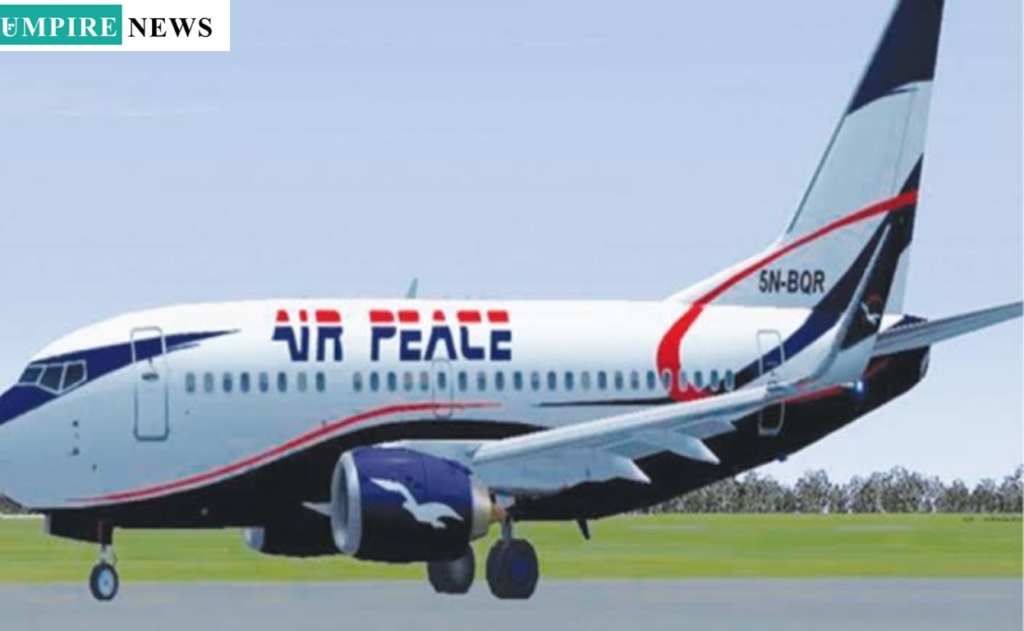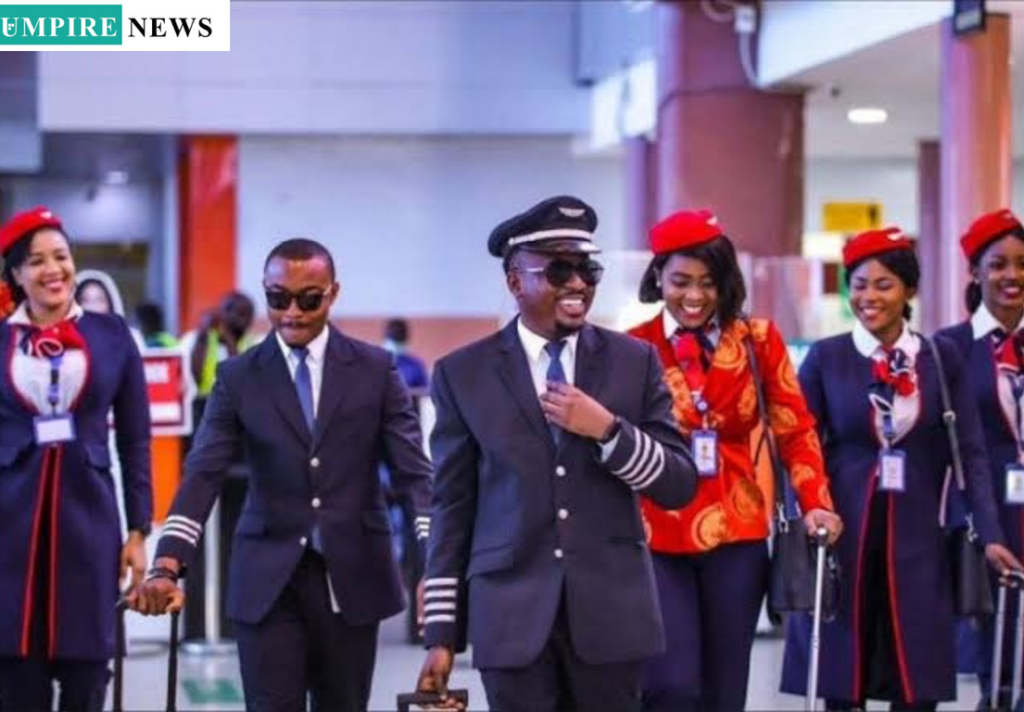Two Nigerian airlines, Air Peace and Caverton, have been officially designated to operate on the Nigeria-Brazil route, a significant step towards strengthening aviation links between the two countries.
This move comes after the initiation of high-level discussions between Nigeria’s Minister of Aviation and Aerospace Development, Festus Keyamo, and the Brazilian Ambassador to Nigeria, Carlos Garcete.
These discussions aim to activate the long-standing Bilateral Air Service Agreement (BASA) between the two nations and set in motion direct flights between Nigeria and Brazil.
The dialogue follows the Memorandum of Understanding (MoU) signed between Nigeria and Brazil in 2018, which was designed to boost air connectivity and foster deeper economic cooperation.

However, despite the signing of the MoU, the establishment of direct air services has been delayed, until now.
The renewed discussions reflect a growing desire from both sides to finally bring these plans to fruition, particularly in light of the changing dynamics in the global aviation industry.
During the meeting, both Keyamo and Garcete underscored the need for new BASA arrangements that would better reflect the evolving realities of the aviation sector.
Technological advancements, shifts in travel demand, and economic considerations have all reshaped how nations approach air service agreements.
Therefore, the ongoing discussions aim to modernize the terms of BASA in a way that benefits both countries.
This latest push towards direct flights between Nigeria and Brazil stems from mutual interests shared by Nigerian President Bola Tinubu and Brazilian President Luiz Inácio Lula da Silva.
The two leaders met in Addis Ababa, Ethiopia, in February 2024, where they engaged in talks to reinitiate the BASA arrangements.
Their discussions highlighted the deep cultural and economic ties between Nigeria and Brazil, which they believed could be further strengthened through direct air connectivity.
As two of the largest economies in their respective regions, both nations recognized the potential for mutually beneficial exchanges in trade, tourism, and cultural collaboration.
The Brazilian Ambassador to Nigeria, Carlos Garcete, emphasized the importance of direct flights in stimulating economic growth and enhancing relations between the two nations.
He noted the strong potential for immediate commencement of flight services and suggested that both countries could feasibly support 4 to 5 weekly flights between major cities.
According to Garcete, the introduction of direct air services would likely have a profound impact on bilateral trade and economic cooperation.
“The introduction of direct flights will spark significant economic growth between our countries,” Garcete stated, highlighting the opportunity for both nations to capitalize on increased connectivity.
However, he also stressed the need to finalize the Open Skies Agreement, which would remove barriers and fully enable the proposed flight operations.

Open Skies Agreements are essential for allowing airlines greater freedom in planning routes and setting schedules, thus making air travel more efficient and accessible for passengers and businesses alike.
Minister Keyamo, in response, expressed his gratitude for Ambassador Garcete’s visit and shared the same optimism about the economic potential that these direct flights would unlock.
He highlighted the numerous similarities between Nigeria and Brazil, from their shared history of cultural exchanges to their status as emerging global powers.
“There are numerous similarities between Nigeria and Brazil, and the activation of these flights will not only enhance trade but also strengthen cultural and social exchanges,” Keyamo said.
Direct flights, he explained, would facilitate easier movement of goods and people, thereby promoting deeper ties in both economic and social spheres.
Furthermore, they would position Nigeria as a key player in the South American market, while Brazil could enjoy greater access to the African continent.
To ensure that the implementation of this initiative is seamless, both Nigeria and Brazil have agreed to set up specialized committees tasked with drafting and finalizing the new BASA arrangements.
These committees will work diligently to address any technical, legal, or operational challenges that may arise, ensuring that direct flights can commence without unnecessary delays.
Additionally, the Brazilian Ambassador extended a formal invitation to Minister Keyamo to visit Brazil for the official signing of the agreement, marking a major milestone in the aviation partnership between the two countries.
Keyamo reaffirmed Nigeria’s commitment to advancing bilateral aviation agreements that promote economic development and connectivity. He stated that Nigeria views its partnership with Brazil as a critical step in enhancing the country’s aviation sector.
By establishing these direct flights, Nigeria’s aviation industry stands to gain significant international exposure, which will contribute to its long-term growth and competitiveness.
“With the operationalization of this agreement, the Nigerian aviation industry is set for enhanced growth and expanded international reach,” Keyamo stated, reflecting the government’s broader ambition to position Nigeria as a major aviation hub in West Africa.
The activation of the Nigeria-Brazil air route represents a strategic move that is expected to bring about substantial economic benefits for both nations.
By facilitating direct flights, the agreement will create new opportunities for trade, investment, and tourism, while also fostering greater cultural understanding between the two countries.
With Air Peace and Caverton at the forefront of this initiative, Nigeria is poised to strengthen its aviation ties with Brazil and further solidify its standing in the global aviation landscape.































